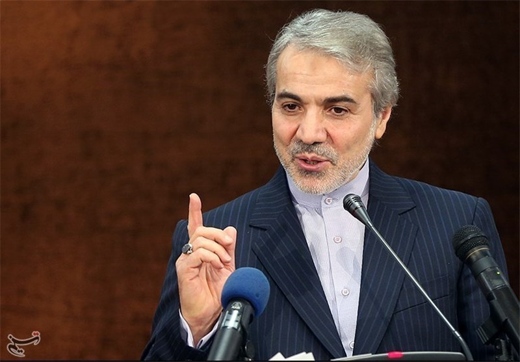“These assets have fully been released and we can use them,” Government spokesman Mohammad-Baqer Nobakht told Iran’s Alalam television network on Sunday night.
Much of the money from sales of the Iranian oil has been piling up in banks in China, India, Japan, South Korea and Turkey over the past few years.
Those countries have been holding the funds in escrow because sanctions imposed by the West in 2012 prevented the Islamic Republic from repatriating them.
To move the money back home, Iran had to use international banks but they were unable to process Iranian transactions since the country was cut off from the SWIFT financial-transactions system.
Nine more Iranian banks were to re-connect to the SWIFT early Monday, Governor of the Central Bank of Iran (CBI) Valiollah Seif said.
However, the bulk of the roughly $100 billion will not be sent home. State officials are cognizant of inflationary impacts which a sudden flush of money of this magnitude could have on the economy.
Iran is likely to move the funds into various directions abroad for use in different purchases or investments.
Nobakht said, “There is no need to bring the money in. It is likely that a certain amount which is needed is brought in. But altogether, it is not necessary because we can use it in our (overseas bank) accounts.”
The spokesman also said much of the money released belongs to the CBI and the National Development Fund.
“The government’s share is about six to seven billion dollars but assets belonging the Central Bank and the National Development Fund are much higher,” Nobakht said.
Frozen assets in US, Shell debt
The Central Bank of Iran has also “made headway and taken certain measures” on recovering Iranian assets frozen in bank accounts in the US and an outstanding debt owed by Royal Dutch Shell to the Islamic Republic.
In 2012, President Barack Obama issued an executive order blocking all of the Central Bank of Iran’s almost $2 billion held in Citibank accounts in New York.
The case has moved to US Supreme Court which is considering lawsuits by over 1,300 Americans pressing to receive billions of dollars of the Iranian money in awarded damages.
The Obama administration has reportedly urged the court not to overturn the decisions of US circuit and appeals courts to award the plaintiffs.
Meanwhile, Shell’s debt of $2.7 billion stems from Iranian oil deliveries in 2011 and 2012 that the company was unable to pay because of the sanctions.
Last month, an energy official in Tehran said the National Iranian Oil Company (NIOC) and Shell had reached a final deal on how the Anglo-Dutch firm must clear the debt.
